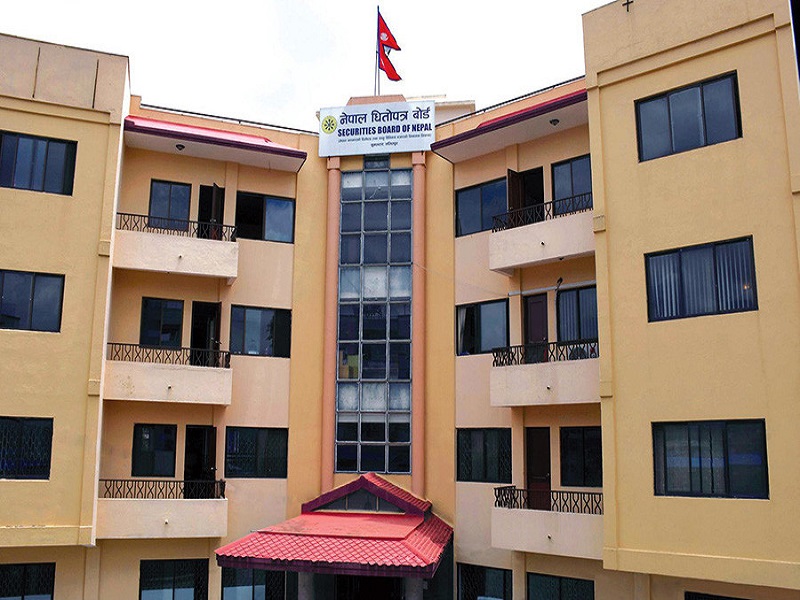CAN Federation’s Key Budget Recommendations For IT Growth & FDI
28th May 2025, Kathmandu
Nepal’s journey towards becoming a global IT powerhouse is gaining momentum with a comprehensive set of budget recommendations submitted by the Federation of Computer Association Nepal (CAN Federation) to the Ministry of Finance.
CAN Federation’s Key Budget 2025
These proposals for the fiscal year 2082/83 budget are strategically designed to propel Nepal’s information technology (IT), information and communication technology (ICT), and digital sectors, with an ambitious goal of creating 1.5 million jobs and achieving NPR 30 trillion in IT service exports by 2035.
The recommendations, a result of extensive consultations with IT industries, digital service providers, academia, and private sector stakeholders, tackle critical challenges and propose actionable solutions to foster a vibrant digital economy in Nepal.
Catalyzing Growth Through Tax Incentives and Investment
A cornerstone of the CAN Federation’s proposal is a robust set of tax incentives aimed at attracting investment and fostering growth within the IT sector. Key recommendations include:
15-Year Corporate Tax Exemption: A significant proposal is to implement a 0% corporate tax for 15 years on income generated from domestic operations and foreign exports by IT companies.
10-Year Tax Holiday for Startups: To further incentivize new ventures, a 10-year tax holiday is suggested for IT companies and startups.
Export Credit and R&D Incentives: The federation advocates for an 8% export credit facility, aligning with other export industries, and proposes tax exemptions on research and development (R&D) expenses incurred by IT companies.
The CAN Federation underscores that without long-term tax incentive policies, Nepal’s IT sector risks lagging behind international competitors, discouraging foreign investment, and hindering private sector growth, ultimately impacting job creation and export potential. Conversely, implementing these policies could lead to an annual foreign exchange earning of NPR 800 billion from IT exports and the creation of 400,000 direct IT jobs within the next decade.
Empowering the IT Sector Through Financial Access
Recognizing the crucial role of financial support, the recommendations push for enhanced access to credit for IT businesses:
Priority Sector Lending Status: The CAN Federation strongly urges the Nepal Rastra Bank to formally classify the IT sector as a ‘priority sector.’ This designation would encourage financial institutions to invest in the sector, facilitating access to finance for a sector known for its high investment returns, export orientation, and potential for foreign currency reserve growth and job creation.
Collateral-Free Loans: The proposal calls for collateral-free loan facilities for IT companies registered as SME businesses and advocates for “Innovation Loans” for startups without the need for collateral. The federation also highlights the existing challenge in providing collateral-free loans to women entrepreneurs, urging for better facilitation of these provisions by financial institutions.
Strengthening Digital Governance and Infrastructure
Robust digital infrastructure and streamlined governance are vital for a thriving digital economy:
Mandatory Digital Signatures and Centralized KYC: The federation proposes making digital signatures mandatory for all taxpayers, auditors, and businesses. It also recommends developing a centralized KYC portal linked with the National Identity Card system and funding a one-door platform for seamless government service delivery.
Broadband Expansion: Incentives for high-speed internet expansion, targeting 90% coverage in rural and remote areas, are recommended. The effective utilization of the Rural Telecommunication Development Fund is also highlighted for the rapid deployment of 5G and fiber optic networks nationwide.
Reforming Taxation for Internet Service Providers (ISPs)
The recommendations specifically address tax adjustments for ISPs, acknowledging broadband internet as a basic necessity:
Reduced Royalty and TDS: Proposed changes include reducing the royalty to 0% (currently 4%) and lowering TDS on bandwidth import from 10% to 5%.
Corporate Tax Reduction: A significant reduction in corporate tax for ISPs from 30% to 20% is suggested.
Bolstering Cybersecurity and Data Protection
With increasing digital dependency, cybersecurity is a paramount concern:
Dedicated Cybersecurity Budget: A dedicated budget of up to 12% of the total budget is proposed for cybersecurity workforce development, national cyber incident response and audit programs, and the prevention of online child sexual exploitation.
Local Solutions and Training: The federation recommends supporting local firms developing security equipment and services, alongside mandatory cybersecurity training in government and private institutions.
Fostering Hardware Production and AI Innovation
To create a holistic digital ecosystem, the recommendations also focus on hardware and emerging technologies:
Reduced Hardware Import Duties: To enhance competitiveness, the federation suggests reducing import duties on critical hardware such as laptops, AI infrastructure, computing equipment, and interactive panels.
AI Innovation Fund and Infrastructure: The establishment of an AI innovation fund is proposed, alongside the development of infrastructure to support AI training, data cleansing, and secure access. A regulatory ‘sandbox’ environment for Web3 and fintech applications is also suggested to encourage innovation in emerging technologies.
Prioritizing Local Talent and Global Outreach
Crucially, the recommendations emphasize the importance of local empowerment and international exposure:
Localization of Government IT Contracts: A key recommendation is to mandate that all government IT, software development, system management, data storage, and service operation contracts be awarded exclusively to companies registered in Nepal. This includes a strict requirement for all government and sensitive data to be stored and processed within Nepal.
IT Promotion Board and Global Marketing: The establishment of an IT Promotion Board, similar to the Tourism Board, is recommended to foster public-private partnerships, brand Nepal’s IT sector, attract foreign investment, and support local startups. The document also calls for a budget allocation for a ‘Tech Nepal’ international branding campaign and sponsoring Nepalese technical delegations at global expos to enhance international market access.
Chiranjibi Adhikari, Senior Vice President of CAN Federation and CEO of One Cover Private Limited, expressed confidence that the implementation of these suggestions would position Nepal as a significant player in the IT sector in South Asia. He highlighted the potential to create domestic job opportunities for youth, stem brain drain, and ultimately realize the vision of Digital Nepal, emphasizing the critical need for youth empowerment, innovative technology, and effective government policies.
For more: CAN Federation’s Key Budget 2025







